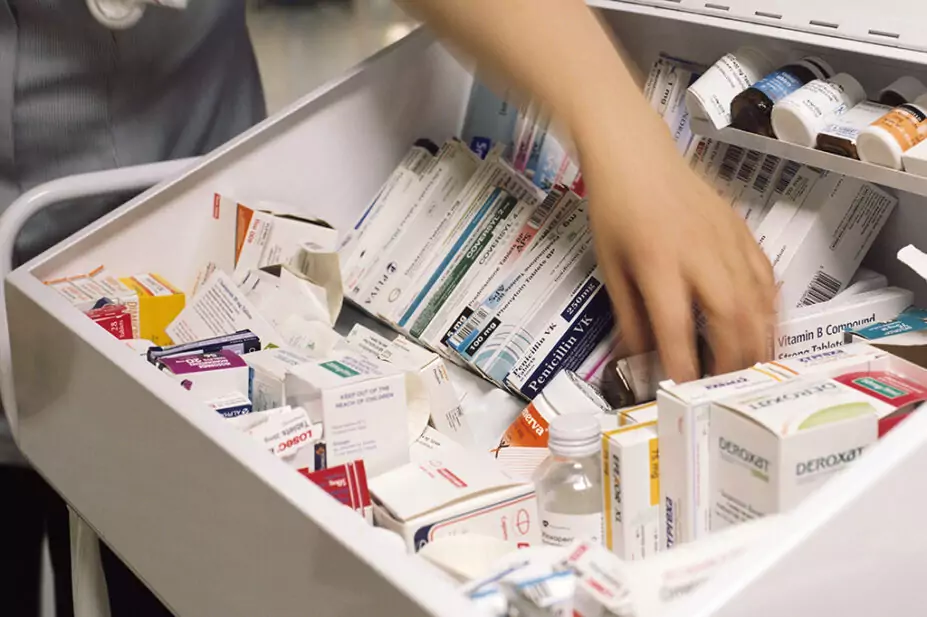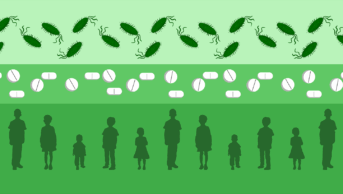
MARK THOMAS/SCIENCE PHOTO LIBRARY
Guidance designed to limit prescribing of ‘low priority’ treatments has resulted in around half the potential savings identified being made, information published by NHS England (NHSE) has suggested.
New NHSE guidance for integrated care boards (ICBs) on how they can improve medicines optimisation in their region, published on 31 July 2023, includes “addressing low priority prescribing” as one of 16 “national medicines optimisation opportunities” that ICBs can adopt.
Low-priority prescribing includes medicines for which there are significant safety concerns; a lack of robust evidence of clinical effectiveness; and that are clinically effective but deemed a low priority for NHS funding.
Guidance on reducing the prescribing of these drugs was first published in November 2017, with the NHS claiming at the time that it could save up to £141m annually as a result.
The new medicines optimisation guidance says that prescription volumes for low-priority medicines have fallen by 58% since 2017, and adds that, in 2022/2023, the NHS spent £78m less on these medicines than it did in 2016/2017 — the year before the initial guidance was published.
Since 2017, NHSE has saved £294m on these drugs, the guidance adds.
The guidance also shows that, since 2017, prescribing of co-proxamol has fallen by 87%; homeopathic drugs by 92%; and glucosamine and chondroitin by 88%.
Commenting on the fall in prescribing of low-priority medicines, a spokesperson for the Royal Pharmaceutical Society said: “We welcome this and we are pleased to see a reduction in the use of these medicines leading to improved patient safety.
“There are significant patient safety concerns related to the use of co-proxamol; it has been removed from the BNF for a number of years, and there are alternatives available for prescribers to use.
“The RPS does not endorse homeopathy as a form of treatment because there is no scientific basis for homeopathy nor any evidence to support the clinical efficacy of homeopathic products beyond a placebo effect. We do not support the prescribing of homeopathic products on the NHS.
“There is limited clinical data regarding the effectiveness of glucosamine and chondroitin for the treatment of osteoarthritis and it is also readily available to purchase for patients who choose to supplement their treatment in this way.
“The cost saving may not be as great [as forecast], as any changes in an individual’s medicines requires a conversation with the person, explaining the risks and benefits and coming to a shared decision about ongoing treatment. Some people may wish to continue with the medicine they are on.
“The new guidance highlights the importance of medicines optimisation for ICSs [integrated care systems], ensuring both patients and the system get value for money on medicines spend. To make sure medicines optimisation is implemented effectively across a system, it is critical that all ICBs have a chief pharmacist/director of medicines and pharmacy to oversee this.”
The new guidance on the 16 national medicines optimisation opportunities recommends that ICBs choose at least 5 from the list to focus on and deliver, alongside their local medicines optimisation priorities.
Opportunities included in the list are: addressing problematic polypharmacy; improving respiratory outcomes while reducing the carbon emissions from inhalers; addressing inappropriate antidepressant prescribing; and improving valproate safety.
- This article was amended on 9 August 2023 to clarify that savings were less than the potential identified, not the predicted amount.


